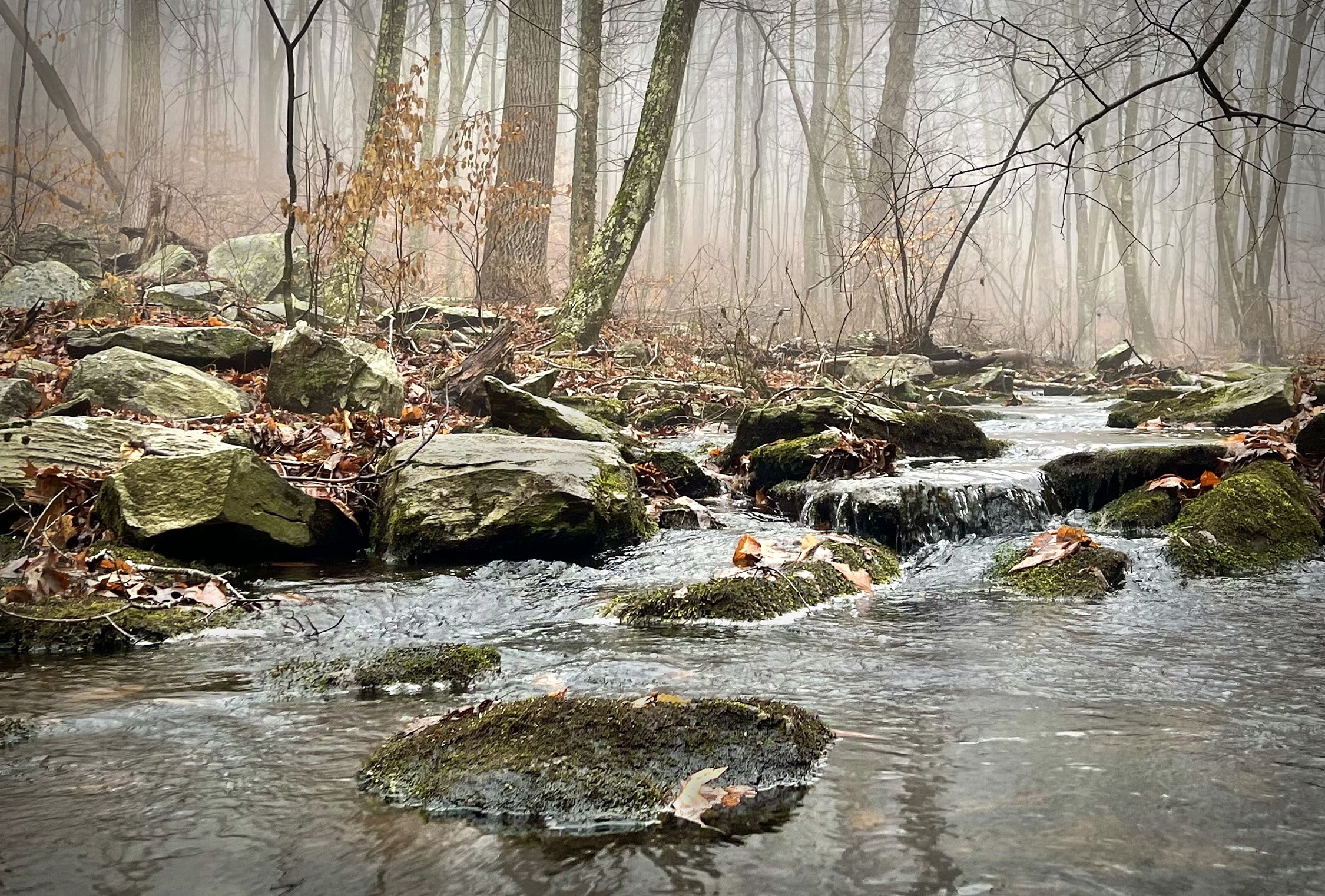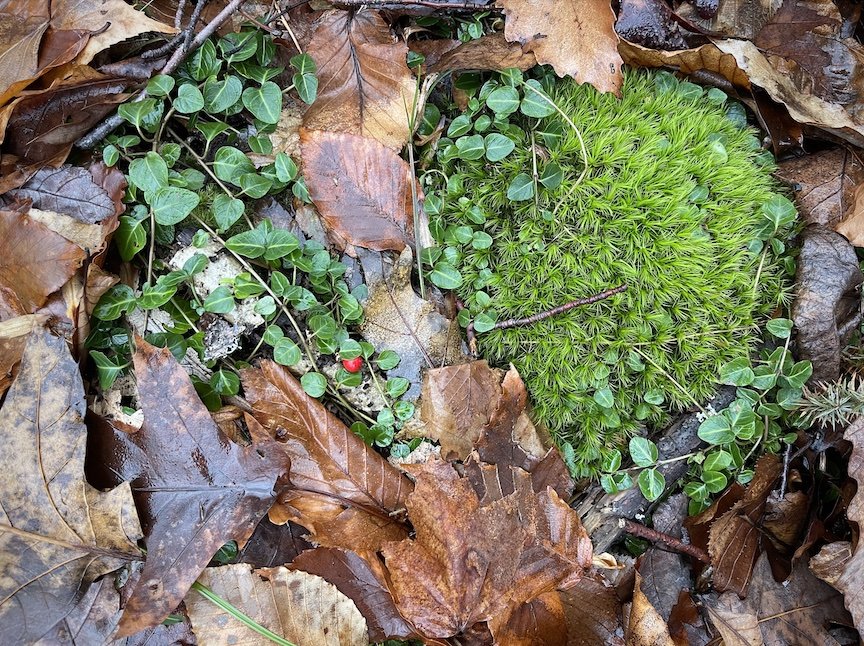The Restorative Power of Nature
Burnham Brook, East Haddam, CT
I must confess, I sing to the trees. They don’t judge. I think the nearby squirrel had something to say, but between her and the dense mist dripping from the trees, all was silent between the notes of my voice. Slowly as I walked, I could hear the distant wash of water over stone, where Burnham Brook babbled and had stories to tell.
Forest Love
Humans have been co-evolving with the forest longer than any of us can fathom and when we tune in, we know this connection deep in our bones. Over the history of our species, we have spent 99.7% of our time closely entwined with the natural world. Today, we spend 90% of our time indoors using technologies our Stone Age brains are not, frankly, fully ready to process and our bodies are taking the beating.
In our hurried modern lives, how can we come into balance in a way that best supports our internal rhythm? Studies have shown that a healthy connection with nature has the power to alleviate psycho-physiological stress including anxiety and depression.
In particular, the practice of forest bathing or mindful time spent among the trees, has been shown to reduce levels of cortisol (stress hormone), reduce blood pressure and heart rate, reduce inflammation, improve mood, sleep, and cognitive functions—including focus, creativity, and productivity—as well as, boost our immune system to name a few. From the biopsychosocial to the spiritual benefits, this growing global wellness practice is taking root.
Misty Morning
Forest bathing is inspired by the Japanese practice of shinrin-yoku, or taking in the forest atmosphere. It began as a formal practice over 40 years ago in response to the technostress of the 1980’s. Today, it’s where yoga was about 30 years ago in the United States.
In the practice of forest bathing, emphasis is placed on sensory connection—waking up our bodies to the aliveness we experience through touch, smell, sight, sound, and even taste. It’s about coming into relationship with the natural world and feeling an innate sense of belonging, dissolving, if even for a moment, the sense of separation between us and the rest of nature.
While some of the health benefits are experienced through participating with the forest in a mindful way, others are offered directly from the trees.
The trees emit aromatic organic compounds called phytoncides. Translated from Greek and Latin, it means “plant” and “killer.” Phytoncides are part of the trees’ immune system, protecting them from pests and pathogens. Because we evolved with trees, these phytoncides protect us too. When we breathe them in through the forest air, they boost our immune system, increasing the number of natural killer cells that attack virus infected cells, as well as, boosting anti-cancer proteins. Phytoncides are also responsible for reducing the stress hormone, cortisol, and blood pressure. The natural aromatherapy of phytoncides is emitted by nearly all plants. You can smell these in conifers, that signature scent that says, “I am pine.”
Ten Thousand Buds
The recommended dose to receive nature’s benefits is 2 hours per week. The longer you are in the forest, the greater the immune boost and the longer the effects. For example, spending three days in the forest can boost your immune system for up to 30 days.
If you’d like to head out to a forest near you, there are a few ways to approach the practice of forest bathing. The first is to remember it’s not about being in nature so much as how you are with nature. When we slow down, open our senses, and stop to notice the forest along the way, we are also supporting present moment awareness. This mindful awareness amplifies the restorative effects of the landscape. Simply sitting in stillness among trees for 10-30 minutes has proven to reduce stress. You might even notice that after about 20 minutes, the birds return and you are fully immersed in the forest community.
If you would prefer a guided experience, you can attend a walk with a certified forest therapy guide. The guide will offer you a mindful immersion complete with invitations to engage with nature and a wild-foraged tea to conclude the experience.
There is great hope in restoring our connection with the Earth. When we foster a re-connection to nature for the betterment of ourselves, our communities, and our planet, we come home—to our wholeness and our deep belonging. All beings benefit.
So the next time you step outside—dip into the well of wonder, stay curious, and perhaps sense a deep gratitude for the miracle of this life and all life. Feel your aliveness with each step, each breath…see where it takes you.
Maybe even hum a tune.
Dripline
Join Regan and ERWSCC for a complimentary forest bathing walk this spring. Please check the Eightmile River Facebook page for an event announcement or email us at info@eightmileriver.org. Registration will be limited to 10 people.
This article first appeared in the Eight Mile River Wild and Scenic Watershed annual newsletter, February 2022. All photos, Regan Stacey.





